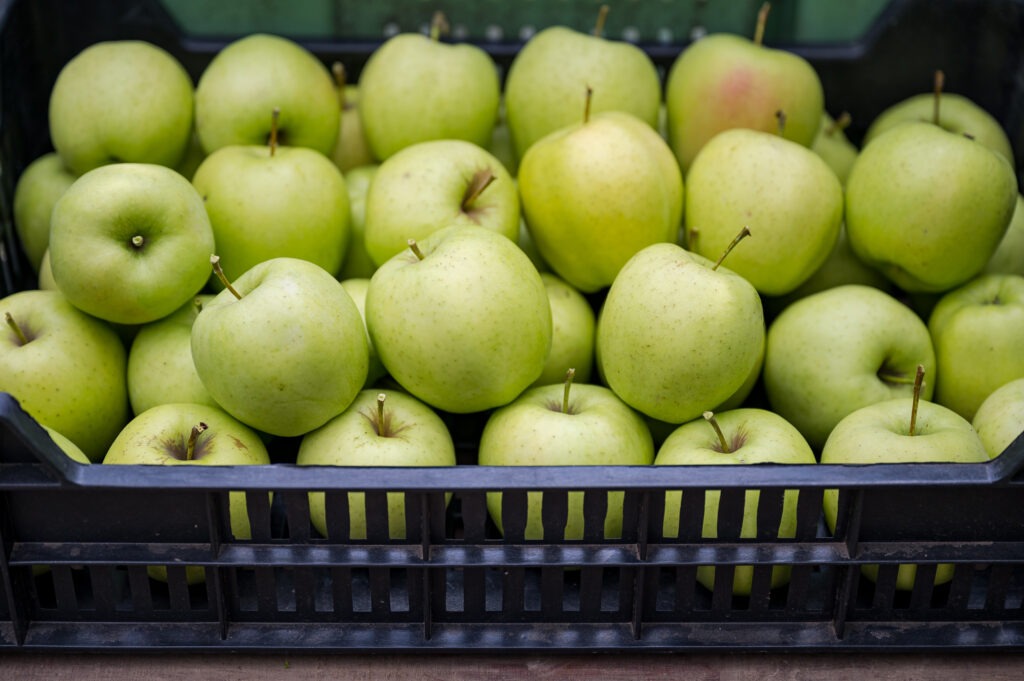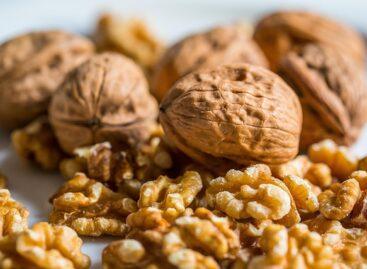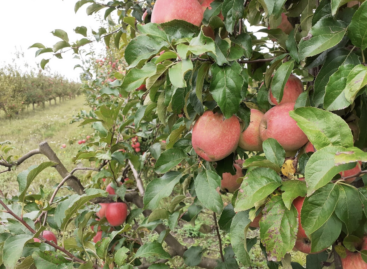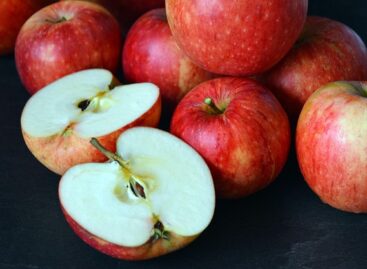Hungarian apple producers are in trouble
The weather has dealt a serious blow to domestic apple orchards this year. Due to spring frosts, an unusually cool May, drought and a summer with extreme temperature fluctuations, the application of extensive cultivation technology in many cases, and partly due to the use of outdated varieties, producers were able to harvest the weakest harvest of all time – according to a joint overview of the National Chamber of Agriculture and the Hungarian Fruit and Vegetable Association (FruitVeB).
 The owners of domestic apple orchards were able to harvest the weakest harvest of all time this year. Although final data on the harvested quantity is not yet available, the National Chamber of Agriculture and the Hungarian Fruit and Vegetable Interprofessional Organization (FruitVeB) estimate that barely 160 thousand tons of apples were produced in our country in the 2025 season. This quantity is only half of the previous year’s already very low harvest. Of the harvested quantity, approximately 60-80 thousand tons can be table apples and 80-100 thousand tons can be industrial-quality fruit, which also means that our table apple crop corresponds to only 55-60 percent of the yield of a good vintage, while industrial apples are only 20-25 percent of the yield of an average vintage. The extent of the crop loss in both the table and industrial apple segments is significant compared to market demands: we fall well short of the domestic table apple consumption of 110-120 thousand tons and our processing capacity of 350-400 thousand tons, although both segments should be served by at least 90 percent domestic production.
The owners of domestic apple orchards were able to harvest the weakest harvest of all time this year. Although final data on the harvested quantity is not yet available, the National Chamber of Agriculture and the Hungarian Fruit and Vegetable Interprofessional Organization (FruitVeB) estimate that barely 160 thousand tons of apples were produced in our country in the 2025 season. This quantity is only half of the previous year’s already very low harvest. Of the harvested quantity, approximately 60-80 thousand tons can be table apples and 80-100 thousand tons can be industrial-quality fruit, which also means that our table apple crop corresponds to only 55-60 percent of the yield of a good vintage, while industrial apples are only 20-25 percent of the yield of an average vintage. The extent of the crop loss in both the table and industrial apple segments is significant compared to market demands: we fall well short of the domestic table apple consumption of 110-120 thousand tons and our processing capacity of 350-400 thousand tons, although both segments should be served by at least 90 percent domestic production.
There are several factors behind the particularly poor harvest. The extreme drought and heat stress of almost three months last summer and early autumn – despite the autumn rainfall – probably contributed to the poor flower bud development. However, the greatest damage was undoubtedly caused by the frosts that arrived in early April and on May 10. The April frosts affected 80-90 percent of the apple-growing areas very severely, while the frosts on May 10 caused significant damage in the north-eastern part of the country. The latter meant a particularly large loss because three-quarters of our apple orchards are located in the north-eastern part of Hungary. The weather did not develop well after the late spring frosts either: cool, light-poor weather prevailed for almost the entire month of May – but only brought minor rainfall – which had an overall unfavourable effect on fruit setting. Then, in June, heat waves often developed, which were coupled with the severe drought that had been ongoing since early spring and high UV radiation. All this caused further quantitative and qualitative losses, primarily on unirrigated plantations and sandy soils.
Apples are currently produced on about 20 thousand hectares in Hungary, which is only half of the area produced 20 years ago. Despite the sharply decreasing production area, our production potential in a good year would be about 500 thousand tons, of which about 120-130 thousand tons are eating quality, and 370-380 thousand tons are industrial apples. In 2024, the domestic apple harvest fell well short of the average: producers harvested only 342 thousand tons.
Today, Idared is still the dominant variety in Hungary. The cultivation and yield of this variety is perhaps the most suitable for our climatic conditions, it can be stored well, and it is popular due to the size and color of the fruit. The variety selection is still very wide, in addition to Jonagold and Idared, Gala, Golden Delicious, and Red Delicious are also very popular, but the range of new varieties expanding the range is constantly growing. However, the cultivation of new varieties requires new technologies and new areas, and many previous plantations need to be renovated. However, we do not have any specific domestic studies on the economic value-measuring properties of the new varieties, regarding their suitability. Therefore, we warn everyone against starting large-scale plantings of untested varieties under unknown domestic conditions.
In addition to being a real vitamin bomb, apples have a beneficial effect on maintaining our general health and also play an important role in strengthening the immune system in the autumn period. Due to their good storage properties, they are available on the market almost all year round. Apples have a significant fiber content, which is of particular importance for healthy eating.
Related news
Organic products really do have fewer pesticide residues!
🎧 Hallgasd a cikket: Lejátszás Szünet Folytatás Leállítás Nyelv: Auto…
Read more >Hungarian apples are safe and of high quality
🎧 Hallgasd a cikket: Lejátszás Szünet Folytatás Leállítás Nyelv: Auto…
Read more >








